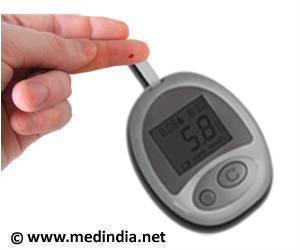Increased stress hormone response is responsible for gastrointestinal symptoms in children with autism

- Many children with autism spectrum disorder (ASD) experience frequent gastrointestinal (GI) symptoms like constipation or abdominal pain.
- The gastrointestinal issues in these individuals may be related to an increased reaction to stress.
- As a reaction to stress, body produces cortisol, the levels of which were found to be higher in autistic individuals with GI symptoms.
About 1% of the world population has autism spectrum disorder according to the Centers for Disease Control and Prevention CDC, 2014 statistics. Prevalence of autism in U.S. children increased by 119.4% from 1 in 150 in 2000 to 1 in 68 in 2010.
More than 3.5 million Americans live with an autism spectrum disorder. Autism services cost U.S citizens $236-262 billion annually.
Many of these children also have significant gastrointestinal issues, but the cause of these symptoms is unknown. Researchers hope that these findings could improve treatment options for these patients.
Studying the Relationship
"To better understand why, we looked for a relationship between gastrointestinal symptoms and the immune markers responsible for stress response. We found a relationship between increased cortisol response to stress and these symptoms." Beversdorf added.
The parents of the participants completed a questionnaire to assess their children's gastrointestinal symptoms. Through the questionnaire, researchers identified 51 patients with symptoms and 69 without gastrointestinal symptoms.
To elicit a stress response, individuals took a 30-second stress test. Before and after the stress test, cortisol samples were gathered through participants' saliva.
Findings
The researchers found that the individuals with gastrointestinal symptoms had greater cortisol levels in response to the stress than the participants without gastrointestinal symptoms.
Cortisol is a hormone released by the body as response stress. Its function is to prevent the release of substances called cytokines in the body. Cytokines that cause inflammation have been associated with autism, gastrointestinal issues and stress.
"When treating a patient with autism who has constipation and other lower gastrointestinal issues, physicians may give them a laxative to address these issues," Beversdorf said.
"Our findings suggest there may be a subset of patients for which there may be other contributing factors. More research is needed, but anxiety and stress reactivity may be an important factor when treating these patients." Beversdorf added.
The study, "Associations between Cytokines, Endocrine Stress Response, and Gastrointestinal Symptoms in Autism Spectrum Disorder", was published in Brain, Behavior, and Immunity, the journal of the Psychoneuroimmunology Research Society.
References
- Facts and Statistics - (http://www.autism-society.org/what-is/facts-and-statistics/)
- David Beversdorf et al. Associations between Cytokines, Endocrine Stress Response, and Gastrointestinal Symptoms in Autism Spectrum Disorder. Brain, Behavior, and Immunity; (2016)
Source-Medindia















